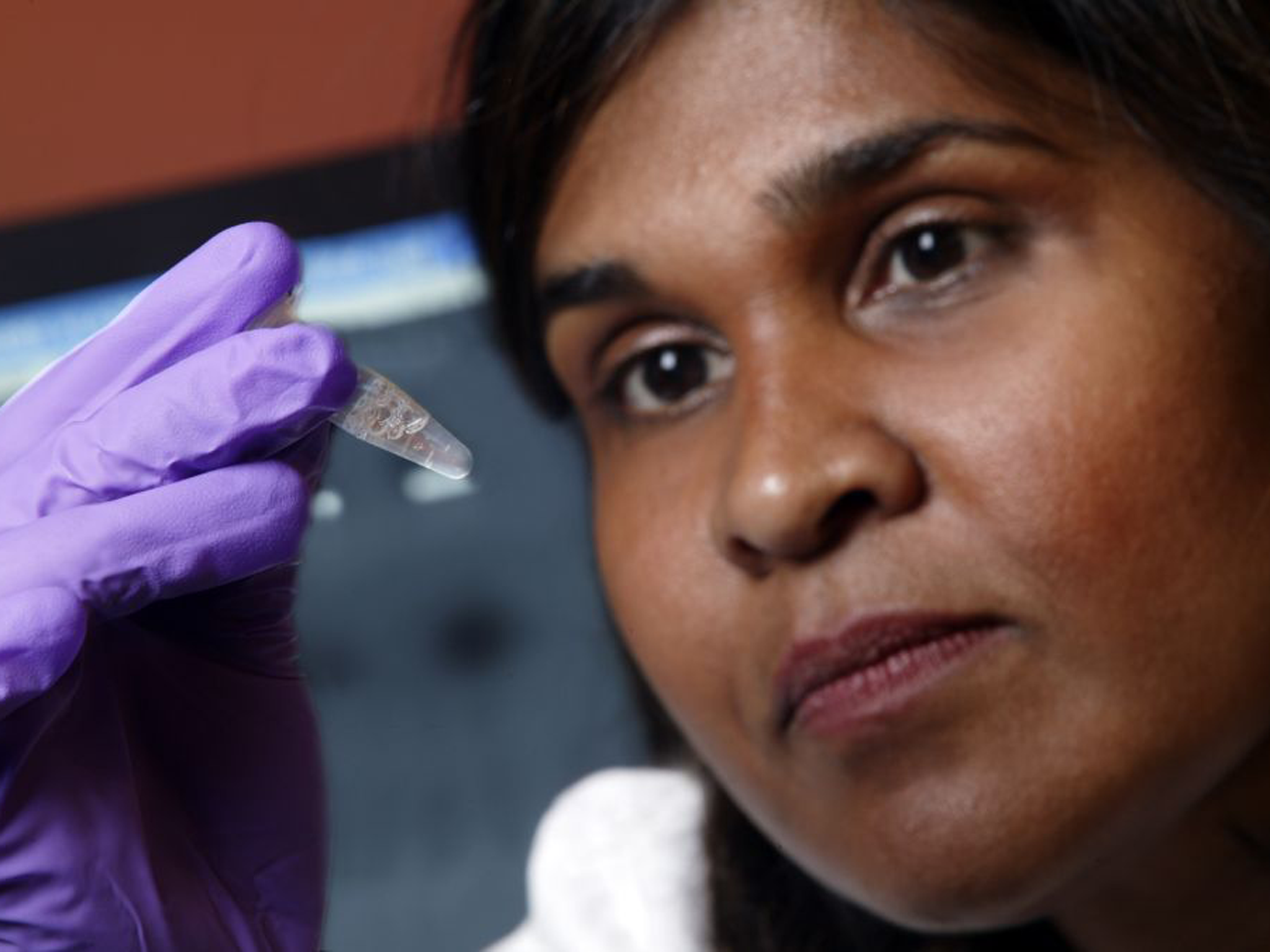Baby born with HIV is still showing no sign of the infection after treatment stopped 18 months ago
Doctors are hoping the child has gone into 'HIV remission'

Your support helps us to tell the story
Our mission is to deliver unbiased, fact-based reporting that holds power to account and exposes the truth.
Whether $5 or $50, every contribution counts.
Support us to deliver journalism without an agenda.

Louise Thomas
Editor
A baby diagnosed HIV positive at birth is still showing no detectable levels of the virus in her blood, despite finishing antiretroviral treatment (ART) 18 months ago.
The three-year-old Mississippi-born child contracted the virus in the womb and received treatment to combat the infection until she was 18 months old. Doctors administered a three-drug cocktail of zidovudine, lamivudine and nevirapine within 30 hours of her birth.
After a week, doctors switched her medication from nevirapine to an aggressive treatment of ritonavir-boosted lopinavir and her viral load began to decline in a manner "similar to that described previously in HIV-1 infected infants and adults receiving ART".
A report published by the New England Journal of Medicine on Wednesday shows the girl is still showing no detectable levels of the virus in her blood, despite her treatment stopping 18 months ago.
Her case drew widespread attention in March when it was revealed that her mother had stopped collecting prescriptions for the infant's medication when she was 15 months old, and told doctors she had not given the child any medication since 18 months of age.
Doctors expecting to find that the child’s viral load was back up since her treatment ended were shocked to find that her plasma level of HIV-1 RNA remained undetectable.
Scientists in Atlanta announced in march the infant was no longer infectious, with Dr Anthony Fauci of the National Institutes of Health describing the news "as close to a cure, if not a cure, that we've seen.“
Further tests found no trace of the virus in the child and documents published in the report show subsequent samples when the girl was 24, 26 and 28 months old all returned with no traces of the virus.
The girl’s growth and development has continued normally, the research added.
“At the age of 36 months, at least 18 months after the cessation of ART, the child has no detectable level of HIV-1 RNA,” the authors wrote.
The child’s case caused some doctors to question if the child had actually contracted HIV in the womb. Evidence printed in the report suggests the child was indeed infected whilst in utero, highlighting a sample taken 30 hours after her birth that contained HIV-1DNA, and a later sample that had a substantial amount of HIV RNA, needed to assign a HIV positive diagnosis.
The authors conclude that the girl’s case could support the idea that administering an aggressive course of antiretroviral drugs immediately after birth may prevent the virus from spreading through the immune system, potentially sparing infants from “a lifetime of therapy”.
"This case suggests that very early ART may interfere with either the quantities or qualities of persistent reservoirs of replication-competent virus," they said.
Subscribe to Independent Premium to bookmark this article
Want to bookmark your favourite articles and stories to read or reference later? Start your Independent Premium subscription today.
Join our commenting forum
Join thought-provoking conversations, follow other Independent readers and see their replies
Comments